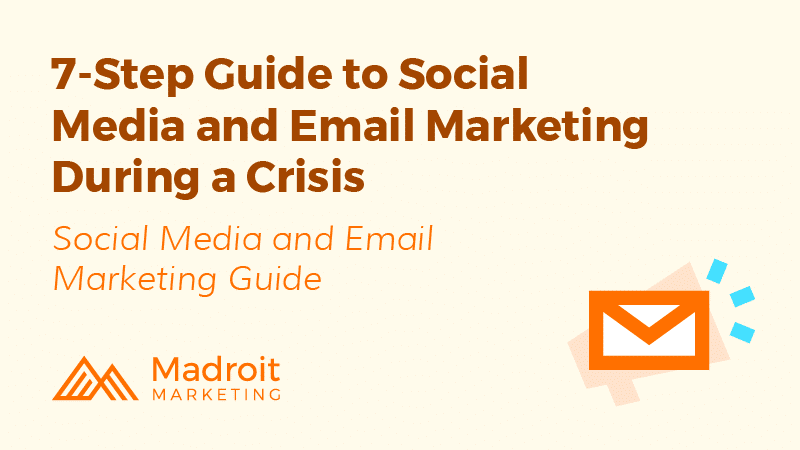
During a crisis, your social media and email communication can make or break your business. Even more importantly, it can help, hurt, or confuse people. For people in direct contact or where clients/patients come to you or you go to them, you can’t just ignore a crisis when it’s affecting your audience.
With the outbreak of the 2020 Coronavirus, social media and email communication about the virus has skyrocketed.
7-Step Guide to Writing Social Media Posts and Emails About the Coronavirus Crisis
Step 1: Act Quickly.
Your audience expects to hear from you. Don’t wait to communicate important information.
Waiting too long can negatively affect your brand reputation and also confuse or stress your audience. They may assume you don’t care or that you aren’t taking the situation seriously.
Tip: Pin your Facebook post about it to the top of your Facebook page.
Step 2: Stop All Scheduled Posts – Be Compassionate and Considerate.
Take time to think about how the crisis is having a direct impact on your community, clients/patients.
Pause insensitive marketing campaigns — like contests or humorous content — and unnecessary events — like in-person workshops or conferences.
Step 3: Describe the Actions You’re Taking to Deal with The Situation.
Your clients/patients want to know what you’re doing to support the health, safety, and well-being of your clients/patients.
Ask yourself the following questions and consider addressing these questions in your email marketing communication:
- How are you cleaning your workplace or building differently?
- How are you protecting your clients/patients and your staff?
- Have your hours of operation changed?
- Will your clients/patients service be disrupted? Will product deliveries be delayed?
- How can customers contact you with questions?
- Where can customers get the latest information about how you’re handling the crisis?
Step 4: Try to Help, Without Spreading False Information.
Businesses that take action to help those affected by the crisis will connect with their clients/patients on a deeper level. People want to do business with companies/practices that genuinely care.
Don’t add to the panic or concern that is already there. Sharing opinions or sharing opinions is rarely appropriate especially during a pandemic.
Step 5: Take It Seriously, No Jokes.
You could come across as insensitive and unaware of the impact the crisis has on the world and your direct customer base.
Use a serious tone in your emails — even if this isn’t your typical brand voice.
Step 6: Monitor the Crisis and Adjust Communications.
Communicate regularly with your audience throughout the crisis. Don’t be afraid to change how you’re addressing or handling the crisis and update your audience with new information.
Step 7: Show Your Clients/Patients You Care.
Your audience may be stressed, upset, or in danger during this crisis. Make sure they know you care about their well-being, health, family, and friends.
If you own a physical store or run an event, explain how you will keep them safe during the crisis.
How effective is your message during a crisis?
We’re here to help!
Get your free consultation.
